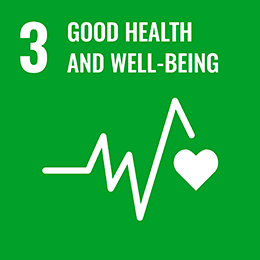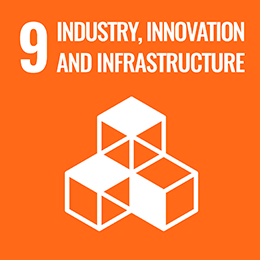Immunity

Share this article
Modern Day Prometheus?
“If you think of biotechnology like the Internet…an infrastructure that can be deployed to sustain or disrupt” – Clayton Christensen
If the pandemic was 2020’s blockbuster then health-at-any-cost is the sequel. Our hopes for liberty are pinned on the efficacy of these newly-created vaccines; much like the plot of Steve Soderbergh’s 2011 film Contagion. As scientists splice together viruses in a race to beat Covid, could I am Legend’s Darkseekers become an unintended reality?
According to Yuval Noah Harari, science fiction is the most important artistic genre today. We’d agree. Science fiction helps to shape the public’s understanding of topics such as artificial intelligence and biotechnology, which, as he writes in 21 Lessons for the 21st Century, are likely to change our lives and society more than anything else in the coming decades.
Remember how Blade Runner, written more than half a century ago, subconsciously prepared us for humanoid robots, as well as, with its backdrop acid rain, the climate crisis?
We may never discover where Covid-19 originated, but in a similar storyline to the virus in Will Smith’s 2007 version of the apocalyptic film, BioNTech/Pfizer and Moderna Therapeutics messenger ribonucleic acid (mRNA) technology was originally ‘designed’ to target specific cancer cells.
Like potential scenes from the 1966 film, Fantastic Voyage, messenger RNA has been reconfigured, in less than a year, to instruct human cells to make the coronavirus’ spike proteins in the body and trigger our immune system to react to them. And, so far, it seems to be working.
Katalin Karikó, a Hungarian-born scientist, was behind a key mRNA discovery in the 1990s, but it was only three or four years ago that it heralded a new era in vaccinology. Immunisation is one of modern medicine’s success stories, currently preventing two to three million deaths every year, and crucial to achieving the Sustainable Development Goals.
It is also, however, big business. The global vaccine market was valued at $46.88 billion in 2019 and it is now projected to reach $104.87 billion by 2027.
Despite the emergence of severe acute respiratory syndrome and Middle East respiratory syndrome in 2003 and 2012, respectively, there were no commercially available coronavirus vaccines in April 2020. Now there are at least four categories of Covid-19 vaccines being developed.
Oxford-AstraZeneca have opted for a viral vector vaccine that smuggles the gene for the coronavirus spike protein into the body inside another virus: chimpanzee cold virus in their case; and a human cold virus for Russia’s Sputnik V and China's CanSino Biologics. Italy is trialling a vaccine using a gorilla adenovirus.
All sound a bit Frankenstein like? Perhaps. While a messenger RNA vaccine has never been on the market anywhere in the world, it has been tested in humans for rabies, influenza, cytomegalovirus and Zika, and now, the UK has approved the world’s first Covid-19 human challenge study.
These human trials are essential because, like the flu virus, mutations of the coronavirus are likely to be with us for some time but one question remains: why are some people more affected than others and some even carry it but are asymptomatic? Innate immunity seems to be one answer.
And immunity, some 70% plus, is manufactured in the gut, home to 100 trillion bacteria that make up the gut microbiome that affects digestive health, weight and can even impact our mood. In relation to Covid-19, early research published in the British Medical Journal indicates that imbalances in the make-up of the microbiome may play a part in the inflammatory symptoms of ‘long Covid’ and explain why some people have more severe reactions than others.
Our predominantly sedentary and often stressful lifestyles (for most of us exacerbated by a year of lockdown) are ‘inflammatory’ and that is before our over-processed sugar-laden diets have been taken into account. All of this has been compromising our gut health, and therefore, our immune systems for decades with obesity and alcoholism among the primary drivers of immune deficiencies.
Autoimmune illnesses, of which there are more than 80, include rheumatoid arthritis, multiple sclerosis, type 1 diabetes, inflammatory bowel syndrome and diseases such as coeliac, Crohn’s, Hashimoto’s and Grave’s. In 2019, the percentage of the adult population diagnosed with autoimmune diseases across countries was 7% in the US, 6% in Europe, 5% in China, 3% each in Brazil and Russia and 2% in Japan.
In 2011, in the US alone more than 50 million Americans were affected by an autoimmune disease costing more than $100 billion annually. This is driving the growth of both the autoimmune diagnosis market is expected to reach $4.55 billion in 2023 and the global autoimmune treatment market, which is expected to more than double to $7.95 billion by 2025 from its 2017 levels.
The anti-inflammatory drugs market is already sizeable and predicted to grow to $191.42 billion by 2027, but even before Covid-19 preventative measures have driven the gut health mega trend. The digestive health products market is one of the fastest growing at a CAGR of 8.4% and it is expected to reach $59.3 billion by 2025, and the probiotics market alone is expected to grow at a CAGR of 7.9% from $48.9 billion in 2019 to reach $94.48 billion by 2027.
Whichever way the health supplements market is cut, it is a growing sector with immunity boosting food products expected to be valued at more than $1 trillion by 2023. But now, even more so, as all eyes are on the vaccine scientists, it is still big pharma with revenues of $1.25 trillion in 2019 that is the market to watch.
Whether it is pharmaceuticals, medical technology (devices, diagnostics, imaging and digital medicine) or immunity-related supplements, all of these different sectors fall under the purview of life sciences, the darling of which is biotechnology. As the world started to go into lockdown, the Nasdaq Biotechnology Index stood at 3,084 on 15 March 2020, hitting a peak of 5,361 on 7 February 2021.
Biotechnology is the business of reconfiguring the building blocks of life, namely carbohydrates, lipids, proteins and nucleic acids, using innovations such as CRISPR for gene editing and CAR-T for cancer immunotherapy. The industry’s accelerated development—and the reason the vaccines could be developed so fast—is thanks to artificial intelligence such as Google’s DeepMind that processes data at unprecedented speeds.
DeepMind’s latest AI programme, AlphaFold, has cracked the 50-year-old ‘protein folding problem’. AlphaFold can now predict how proteins fold into 3D shapes, via the genetic data encoded in the deoxyribonucleic acid (DNA). What any given protein can do depends on its unique 3D structure that is determined by how the amino acid chains 'fold'.
For example, antibody proteins used by our immune systems fold into Y-shaped hooks that latch on to viruses and bacteria. But DNA only contains information about the sequence of amino acids, not how they fold and proteins fold spontaneously within milliseconds before settling into their final 3D structure.
Until now, the permutations of how a protein could fold before becoming the final structure was immeasurable: longer than the age of the known universe, according to Cyrus Levinthal’s Paradox. As many diseases are linked to malformed proteins, this technology will not only allow ‘designer medicines’ but also the creation of more nutritious crops and ‘green enzymes’ that can, for example, break down plastic pollution.
Genetic data will be the new oil and the databases of firms such as DNA-tester 23andMe will be the new land owners, perhaps explaining why its upcoming IPO is valuing at $3.5 billion. Today, you’re not the patient; you’re the product in the biggest straight-to-humans roll out of innovative medicine ever. And that’s on top of the largest home imprisonment in history.
Still, there is one extremely positive historical first. Previously, when all world governments, research establishments and finance bodies all focused on one thing, it was on military technology and on ways that we could kill each other. This all-modern focus on our collective health, rather than mutual destruction, is to be welcomed (albeit cautiously).
Photo: © Niki Natarajan
Article for information only. All content is created and published by CdR Capital SA. The views and opinions expressed in this article are those of the author(s). Information on this website is only directed at professional, institutional or qualified investors and is not suitable for retail investors. None of the material contained on this website is intended to constitute an offer to sell, or an invitation or solicitation of an offer to buy any product or service. Nothing in this website, or article, should be construed as investment, tax, legal or other advice.
Related articles
Smart Health
Hugging is potentially lethal and we clap hospital heroes from our homes, many of us realise we have taken the funding and efficiency of our healthcare systems for granted. But health, its data and delivery is changing. What is the future of healthcare?

Biotechnology
“Everything depends on the people in the labs. New discoveries in fields such as biotechnology and nanotechnology could create entire new industries” ― Yuval Noah Harari. Bread, beer, acetone, penicillin and yoghurt are derivatives of living organisms.

Big Data & DNA
With epigenetics and cheaper ways to check for faulty genes, DNA has the potential to be big business. By next year, the DNA sequencing market could hit $10 billion and that’s before the profits of the consumer industries have been taken into account.




